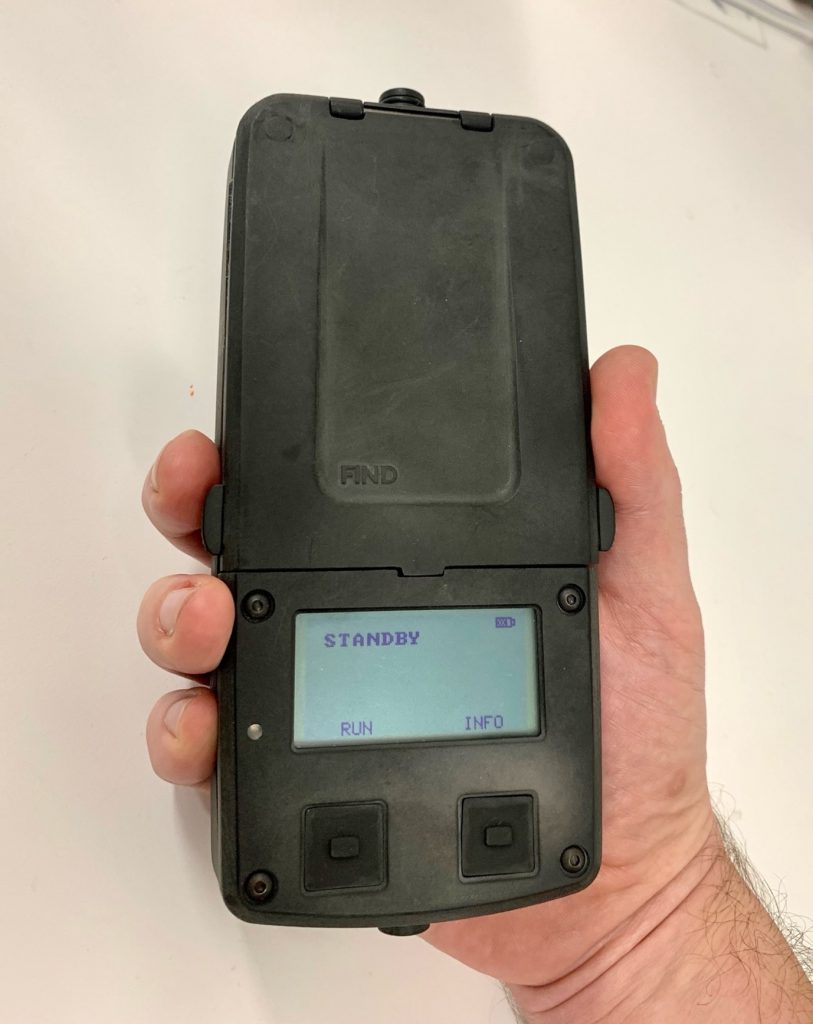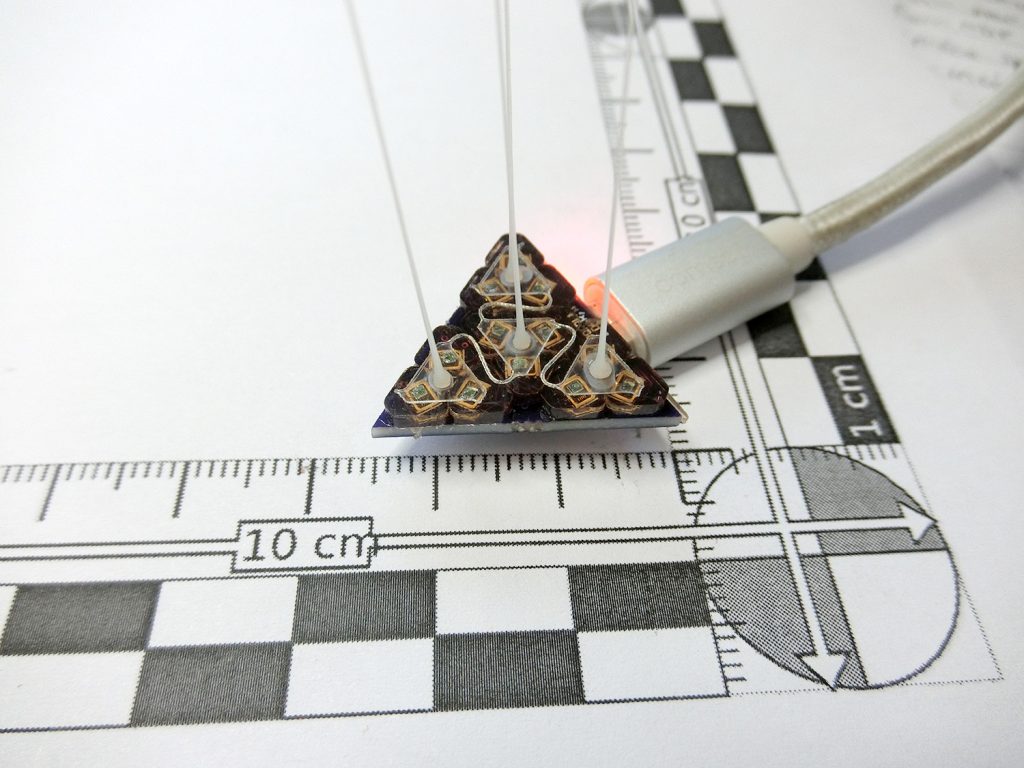UQ Capability Showcase for DSTG – Friday 6th May
On Friday 6th May, the University of Queensland hosted a delegation from DSTG to visit their facilities and learn about Defence capability at UQ. The event served the dual purpose of allowing DSTG representatives to also meet with researchers working on projects of interest to Defence.
Attendees representing both DSTG and UQ included:
On behalf of DSTG:
- Dr Shane Canney – UQ Relationship Executive and Chief of Air and Space Division, DSTG
- Mr Simon Stack – Assistant Director University Partnerships, S&T National Partnerships
- Dr Jeremy Anderson – Acting Director Queensland Defence Science Alliance
Representing University of Queensland:
- Prof. Mark Blows – A/g Deputy Vice Chancellor (Research and Innovation)
- Mr Paul Nicholls – Executive Director Research Partnerships
- Prof. Vicki Chen – Executive Dean, Faculty of Engineering, Architecture and Information Technology (EAIT)
- Dr Greta Nabbs-Keller – Senior Specialist, Defence Research (EAIT)
QDSA Congratulates Dr Shane Canney
The UQ Capability Showcase for DSTG provided a formal welcome to Dr Shane Canney as he steps into his newly appointed role as the DSTG-appointed Relationship Executive to UQ. Relationship Executives are vital to building relationships, maintaining Defence engagement and building strategic alignments across stakeholders.
The QDSA team welcomes Dr Canney and looks forward to growing opportunities for UQ researchers.
During the showcase, Dr Canney was welcomed at UQ by his counterpart, Acting Deputy Vice-Chancellor Research and Innovation, Professor Mark Blows. The program discussed priority areas for collaboration and engagement with UQ’s leading defence research capabilities.
Key Areas of Focus
The single-day event allowed UQ to showcase its facilities, capabilities and growth areas across several high-priority areas for Defence. The program was split into three separate sessions and covered the following key areas of focus:
- Deployable Sensor Systems
- Advanced Materials Manufacture
- Information Systems
- Robotics and Autonomous systems
- Human Sciences
- Hypersonics
Sessions 1 & 2
Session 1: Introductory session discussing UQ’s leading Defence capabilities
Session 2: Capability presentation round table
Deployable Sensors Discussion
1. Prof. Paul Burn.
Prof Burn outlined research and prototypes produced by the Centre for Organic Photonic and Electronics (COPE), highlighting UQ’s proposal for the Centre for Advanced Defence Research and Enterprise- Operating in CBRN Environments (CADRE-OCE). He showcased a Fluorescent Identification of Nascent Dangers (FIND) Handheld 8-Channel Detector developed by COPE, as an example of CBRN sovereign capability.
Dr Canney noted its potential utility for unmanned aerial systems (UAS) deployment and was given a brief demonstration of the handheld detector in Prof. Burn’s lab.

2. Prof. Warwick Bowen.
Prof Bowen highlighted UQ’s strong track record in quantum sensing, including Engineered Quantum Systems (EQUS.
Prof. Bowen discussed three types of quantum sensors:
- inertial sensors
- magnetometers
- acoustic sensors
Prof Bowen stated he was working with industry building novel computers with applications for in-earth orbit or space that were more reliable than semiconductor-based computers.
3. Prof. Craig Williams.
Prof Williams’s presentation was titled “Energetic materials – highly strained hydrocarbons as fuels.” The content focused on counter-measure flares, pyrotechnics, and fuel additives for scramjet propulsion and was presented in collaboration with UQ Centre for Hypersonics Co-director, A/Prof. Anand Veeraragavan.
Advanced Materials Discussion
Dr. Michael Heitzmann & Prof. Matt Dargusch.
Dr. Heitzmann and Prof. Dargusch emphasised the fact that UQ, through the Centre for Advanced Materials Processing and Manufacturing (AMPAM) has unique and defence-relevant capabilities and expertise in high-temperature materials, corrosion, wear and durability. They discussed additive manufacturing using new metal powders (MAX phase materials) and identified opportunities for DSTG and UQ as a ‘”one-stop-shop for characterising materials”.
Their presentation also included the proposal of a new materials development hub and an Australian Arc Jet Facility.
Information Systems Discussion
Prof. Ryan Ko
Prof Ko outlined the UQ Cyber’s interdisciplinary research and world-class facilities, including the Industry 4.0 Energy Test Lab, Agile Security Operations Room, Cyber War Room and Device Testing Lab. He further shared details of UQ Cyber competitions and course offerings within the faculty and referenced the work of the DSTG Program Analysis Cell based at UQ Cyber.
Robotics and Autonomous Systems Presentations
Prof Pauline Pounds
Prof Pound’s presentation showcased the facilities and research underway at the UQ Robotics Design Lab (RDL). She discussed high-sensitivity whisker sensors, near-silent drones, disposable drones and biodegradable sensors.
Prof Pounds flagged the future ability to measure objects before seeing them via aerothermodynamic flow. Her highly informative presentation included video demonstrations of vertical lift drones and low-cost bipedal walking robots.
The image below shows an Ultra-Sensitive Whisker Array for Drones and Robotic Platforms. The device enables high-fidelity measurements of near-proximity contacts, and the local fluid environment allows flying, swimming and other varieties of mobile robots to sense and make sense of the world around them.
Knowledge of wind or water velocities allows drones and submersible robots to compensate for gusts or currents and avoid dangerous impacts with obstacles, all without relying on sight.

Human Sciences Presentations
1. Dr Timothy Ballard
Dr Ballard’s presentation highlighted the importance of psychology for Defence capability. He discussed the School of Psychology’s collective expertise, including Human-AI Teaming and automated systems that best facilitate human performance.
Dr Ballard went on to address leadership and well-being principles. He provided an overview of UQ research focussed on improving submariner endurance and performance in the face of work systems and technological change.
In a detailed presentation, Dr Ballard followed with discussion on several related topics such as computational decision-making, wearable display issues concerning expert staffing and crew and mental health support for training and leadership teams.
2. Dr Richard O’Quinn
Dr O’Quinn provided perspectives on two key projects underpinning the Business School’s collaboration with Defence aimed at the Agile C2 STaR Shot. The projects are known as “Organisational culture, agility and initiative in future military Command and Control (C2)” and “Army Leadership in Motion”.
“Army Leadership in Motion” is a collaborative project with the Centre for Australian Army Leadership (CAAL) based at RMC Duntroon.
“Organisational culture, agility and initiative in future military Command and Control (C2)” explores elements of organisational culture, leadership and human emotion that hinder or enable agility in decision-making.
Session 3
Hypersonics and Advanced Materials
In the afternoon session, DSTG representatives held discussions with the staff of UQ Centre for Hypersonics, which has been at the forefront of atmospheric, hypersonic flight and related technologies for more than 35 years. The session also covered a summary of the ongoing collaboration with DSTG on the development of ceramic matrix composites for hypersonic applications and challenges/ideas for their industrialisation.
UQ Capability Showcase for DSTG Wrap Up
The UQ Capability Showcase for DSTG proved to be another key relationship-building event in the QDSA 2022 calendar. We are continually surprised and impressed by the advances in areas relevant to Defence right here in Queensland, and this event followed suit! There are great things in store for Defence, leveraging the immense talent resident at Queensland universities.
QDSA Upcoming Events and Opportunities
QDSA has many upcoming events and opportunities, with more being added each week. Want to find out what is on the horizon? Check out our News section on our website here or subscribe to our e-newsletter here.
For real-time events and information, be sure to follow us on Twitter and LinkedIn.

The Queensland Defence Science Alliance (QDSA) is a university-led initiative to grow and connect an agile Defence innovation ecosystem, leveraging Queensland’s strengths, to deliver trusted solutions to meet Defence requirements.









